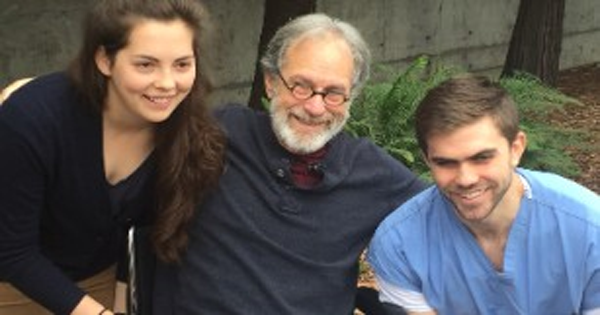It was a Friday evening when Stephen DuMont, 60, arrived at a bus stop sitting in front of the University of Washington Medical Center in Seattle. He’d rolled up on his bike, swung a leg over to dismount and stood – when he was suddenly overcome with light-headedness and then remembered no more.
DuMont suffered from a cardiac arrest that night, and it was an app that ultimately got him the immediate support he needed to survive the incident without suffering from any brain damage.
Zach Forcade, a 27-year-old medical student, saw DuMont fall and immediately rushed over. He shouted at a passerby to call 911 for assistance and proceeded to perform chest compressions on DuMont, to keep his heart beating.
That same 911 call alerted 41 other people in the area of the emergency. All of them were CPR-certified and close enough to administer life-saving help.
This alert came by way of PulsePoint, and it was also how Madeline Dahl, a 23-year-old nurse sitting inside the Medical Center, knew to rush out to the street to Forcade and DuMont’s sides.
"I didn't really know if [the app] would work," Dahl later admitted. "I mean, it sounds like a crazy idea, but then I received an alert, and a little map came up and showed me where he was ... and there he was!"
She’d never received a PulsePoint alert before that moment.
Once she was on the street with Forcade and DuMont, Dahl assisted her fellow med student by keeping DuMont’s air passages clear and counting compressions.
The PulsePoint app was developed by a retired fire chief called Richard Price. He was having lunch near his hometown when suddenly, sirens neared. Just 30 feet away from where he sat, was a person lying unresponsive.
"It was very jarring to have an event happen so close to me where I could have made a big difference in the outcome," Price explained.
Price was determined to avoid having more of these incidents happen in the future, so he developed an app that could alert CPR-certified individuals of an emergency in the area with which they could assist before emergency crews arrived.
"One of our very first activations occurred in San Ramon," Price recalled. "When our crews got there, eight people had responded, and two people were doing CPR. It was sort of remarkable to us."
As for DuMont, he doesn’t remember anything aside from waking up in the ICU. But when he woke up, he remembered thinking, “I’m thinking straight, so there must not be any brain damage.”
The doctor confirmed not long afterward; Forcade and Dahl had saved him from suffering brain damage thanks to their CPR.





